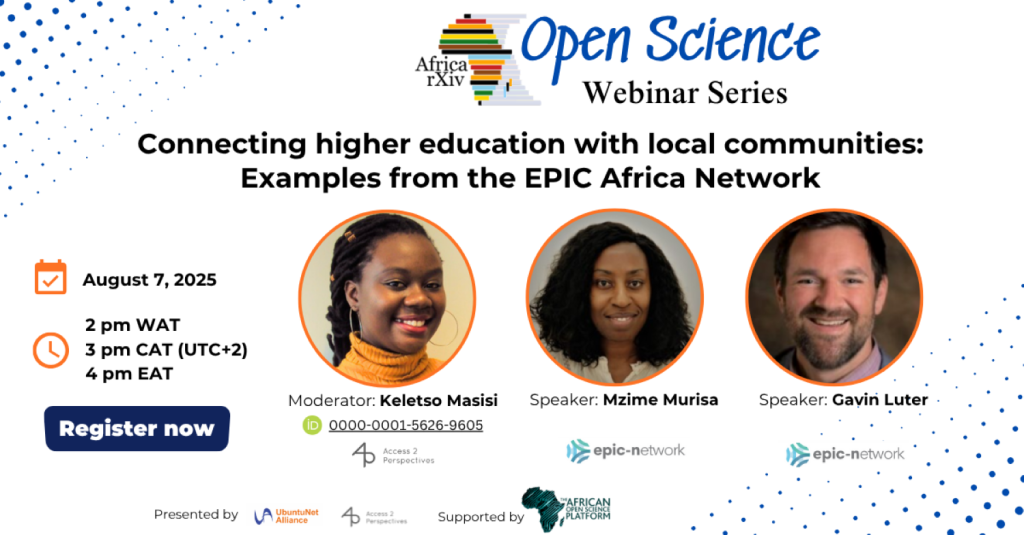On 7 August 2025, the AfricArXiv Open Science Webinar Series welcomed EPIC Network team: Mzime Ndebele-Murisa, EPIC Africa Program Coordinator, and Dr. Gavin Luter, Managing Director of the EPIC Network, for an engaging session on bridging the gap between African universities and their surrounding communities. The session, Connecting Higher Education with Local Communities: Examples from the EPIC Africa Network, showcased how universities can move beyond the campus walls to address real societal needs.
Dr. Luter described the EPIC model as a “matchmaking mechanism” between universities and societal actors such as local governments, NGOs, and community-based organizations. At its core, the model starts with listening, working with local authorities to identify pressing challenges, then aligning those with the expertise and energy available within the university.
In Africa, this approach has been adapted through the EPIC Africa Network, which operates under the principle that sustainable development requires context-specific, co-created solutions. Mzime Murisa shared some examples from several African cities where EPIC projects have connected student coursework with tangible community needs. these included the following:
- In Malawi, students supported urban councils in developing data-driven waste management plans.
- In Namibia, faculty and students collaborated with municipal planners to address informal settlement growth and improve water access.
- In Zimbabwe, climate resilience projects brought together local farmers, researchers, and government officers to test and scale drought-resistant crops.
Dr. Luter emphasized that the EPIC model is not a one-off volunteer activity but a systemic approach, embedding engagement into the curriculum, ensuring projects run long enough to make an impact, and fostering relationships that endure beyond a single semester. This, he noted, requires institutional buy-in, with policies and incentives that encourage faculty to integrate community projects into their teaching and research.
The EPIC Africa Network’s work demonstrates how open science principles can be applied to create mutually beneficial relationships between researchers and the communities they serve. By responding directly to local priorities, these partnerships ensure that research is relevant, accessible, and impactful and ultimately advancing both academic goals and societal well-being.
The Open Science Webinar Series continues on 28 August 2025 with OJS for multilingual, open access journal publishing in Africa presented by Müge Bakioglu of PKP. The session will cover practical strategies for boosting the visibility and credibility of African journals through multilingual publishing and key OJS integrations. You are invited to register and take part!

